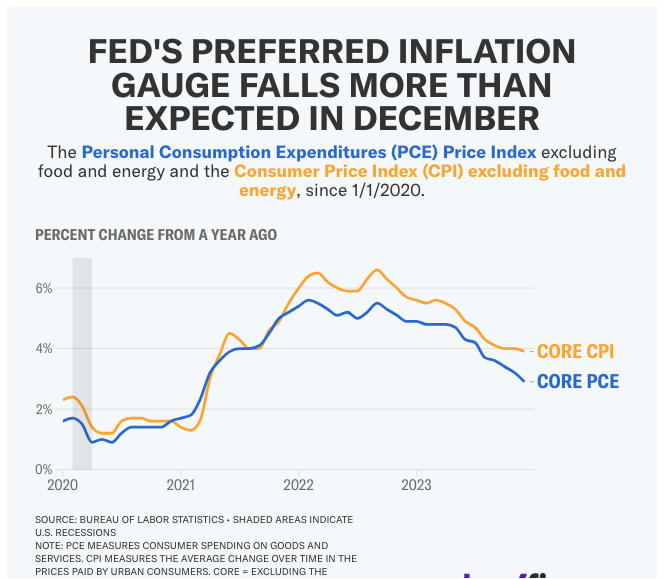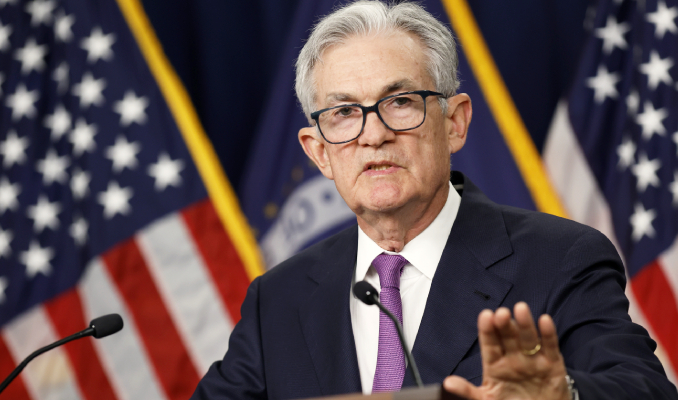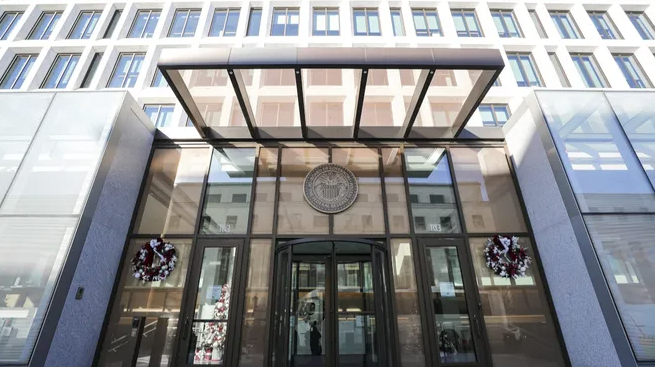Tuesday will mark a crucial moment for investors as they scrutinize one of the pivotal data points shaping the Federal Reserve’s upcoming interest rate decision: January’s Consumer Price Index (CPI).
Scheduled for release at 8:30 a.m. ET, the inflation report is anticipated to reveal a headline inflation rate of 2.9%, marking a notable slowdown from December’s 3.4% annual gain, as per estimates from Bloomberg.
Should these projections hold true, it would signify the lowest annual inflation rate in approximately three years and the first instance of it dipping below 3% since March 2021.

Over the previous month, consumer prices are forecasted to rise by 0.2%, mirroring December’s recently adjusted monthly increase.
On a “core” basis, excluding the more volatile costs of food and gas, January’s prices are expected to have risen by 3.7% compared to last year — a deceleration from the 3.9% annual increase observed in December, according to Bloomberg data.
Monthly core prices are predicted to have climbed by 0.3%, unchanged from the preceding month.
Bank of America (BofA) highlights that core inflation has remained notably persistent, primarily due to elevated shelter prices, alongside “volatile” categories such as used cars, transportation services, and lodging away from home.
BofA economists Stephen Juneau and Michael Gapen noted in a client memo on Monday, “The good news is that we expect shelter inflation to moderate over the course of the year given the disinflation seen in asking rent inflation.”
Within the core category, BofA anticipates services to be bolstered by substantial price hikes in transportation services and lodging away from home, as the demand for travel “started the year on a strong note.” Meanwhile, the bank expects used car prices to decrease by approximately 1.8% on a month-over-month basis.
The Dilemma of Rate Hike:
Annual inflation has consistently exceeded the Federal Reserve’s 2% target. However, the Fed’s preferred inflation gauge, the core PCE price index, has fallen below that rate on a six-month annualized basis, raising hopes that the central bank might contemplate reducing interest rates.
Fed Chair Jerome Powell, nevertheless, has tempered these expectations. He dismissed the possibility of a rate cut in March at the central bank’s last meeting, stating that it’s “probably not the most likely case.”
As of Monday afternoon, markets were pricing in nearly an 85% probability that the Federal Reserve will maintain rates unchanged in March, according to data from the CME Group.
The market largely anticipates the central bank to commence rate cuts at its May meeting, with approximately a 60% likelihood of a cut being priced in.
Bank of America does not anticipate the first Fed rate cut until June.
“A report in line with our expectations would continue to build the Fed’s confidence and support our expectation for the first cut to be in June,” remarked BofA economists.
Fed officials have echoed Powell’s cautious stance.
Cleveland Fed President Loretta Mester emphasized in a speech last week, “It would be a mistake to move rates down too soon or too quickly without sufficient evidence that inflation was on a sustainable and timely path back to 2%.”
Minneapolis Fed President Neel Kashkari added that the Federal Reserve is “not all the way there yet” in addressing inflation concerns. Similarly, Boston Fed President Susan Collins stated she will “need to see more evidence” that inflation is progressing toward the Fed’s 2% target.
Both Mester and Collins suggested that interest rate cuts could potentially occur “later this year.”
“The longer the FOMC waits to lower rates, the more credibility their inflation-fighting determination likely gains,” observed UBS lead economist Jonathan Pingle in a preview note on Friday. “Of course, that strategy carries risks as well, with inflation expectations already falling below levels seen when inflation averaged 2%, and with a reliance on backward-looking activity data.”
“Overall, inflation appears to be declining more rapidly than the FOMC expects,” Pingle continued, highlighting falling inflation as the “macro theme” of the first half of this year.





